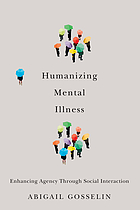
Resources
- Health and Wellness Center
- We are on the 2nd floor of Strebel and offer various overall health services and preventative programs.
- Please email hwc@utica.edu
- https://www.utica.edu/student-counseling-services
- 24/7 Crisis Hotline: National Suicide Prevention Lifeline Network
- www.suicidepreventionlifeline.org
- 1-800-273-8255 (Veterans, Press 1)
- Crisis Textline
- Text "Talk" to 741 741
- Trevor Project
- 1-866-488-7386
- Veterans Crisis Line
- Text 838255
- New York Project Hope Emotional Support Hotline
- 1-844-863-9314
- https://nyprojecthope.org/
- Mobile Crisis Assessment Team:
- 315-732-6228
IN AN EMERGENCY, CALL 911
Mindfulness & Meditation
Here are some mindfulness strategies to adopt into your daily practice:
- Do Nothing for Two Minutes
The company Calm created this website to encourage people to do nothing for two minutes while listening to the sound of ocean waves. The timer will reset if you move your mouse or click anything on the screen.
- Exhaler
This website helps you practice breathing methods for relaxation like the square method.
- Bullet Journaling
This type of journaling has an easy system for managing to-dos.
- Free Yoga
Over 500 free at-home yoga videos.
Videos
The spoon theory is a metaphor that can be used to describe how mental health affects energy levels, and how people with mental health conditions may feel limited in their energy:
How it works
Everyone wakes up with a set number of "spoons"(this varies on how a person feels when they wake or their current mental state), representing their energy for the day. All activities, interactions, or thoughts use spoons(the number can vary). Once they're all gone, people feel physically, mentally, and emotionally exhausted. This can be applied to depression, anxiety, ADHD, OCD, etc.
Benefits
This can help people understand and visualize their energy reserves, getting to know their body and mind.
It was originally developed by writer Christine Miserandino in 2003 to describe her experiences with chronic illness.




